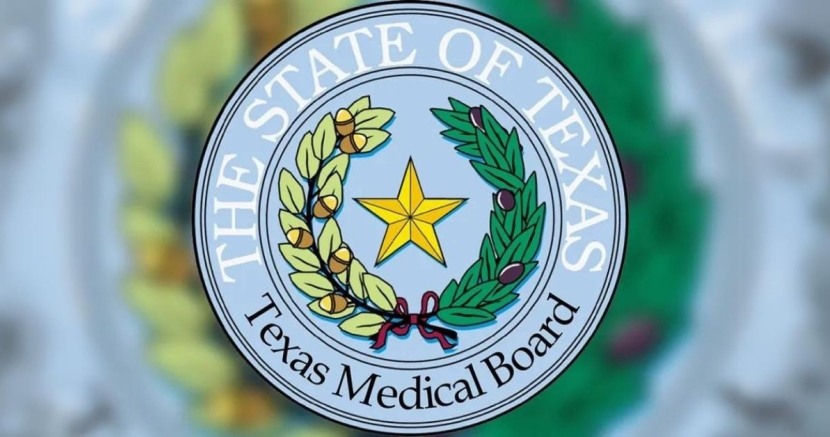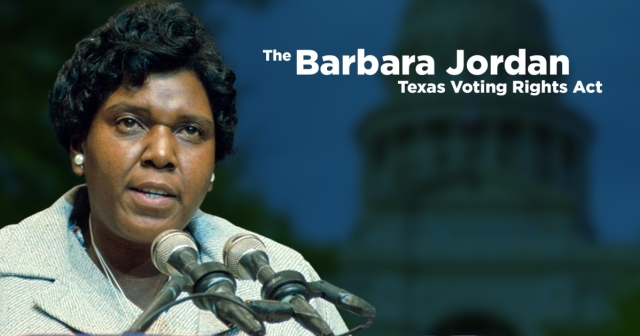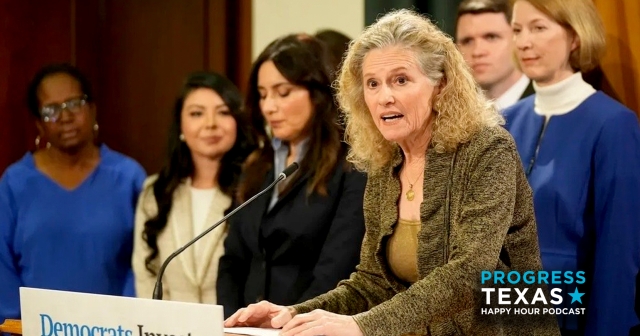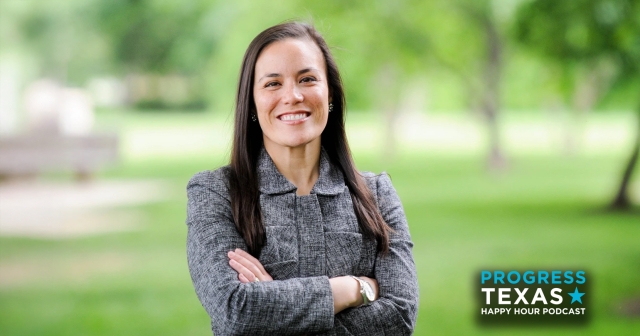Key Facts & Toplines:
- Texans are subjected to extreme, statewide abortion ban
- Texas Medical Board Hearing on May 20, 2024 discussed exceptions to the ban, noting language around “medical emergencies”
- Attendees provided testimony and personal stories with hope to expand and clarify new rules
Why did the TMB meet?
The Legislature, state leaders, and courts have punted the responsibility to the Texas Medical Board (TMB) of defining “medical emergency” exceptions to the statewide abortion ban. The TMB released a set of rules back in March, however many were quick to comment that the new additions were simply a regurgitation of already-established statutes, and did not provide guidance to navigating “medical emergencies.” This is especially the case to doctors, who can lose their license for providing an abortion, and patients, who can lose their life when one is not performed due to far-right legislation.
Who was there:
On May 20, the TMB met to hear public comments on Rule 165 and its sections relating to abortion exceptions. The meeting extended for hours, topping out at more than 130 guests. For the virtual hearing, three out of the 16 Texas Medical Board members were present with their cameras on. They included Board President Sherif Z. Zaafran, M.D., Executive Director Stephen Brint Carlton, J.D., and General Counsel Scott Freshour, J.D. Their main concerns were to provide clarity for the upcoming revisions, and to give flexibility to doctors.
Meanwhile, attendees ranged from former State Senator Wendy Davis to doctors across the state pleading for guidance, representatives from advocacy organizations dictating the needs of patients and medical practitioners, and special guests from the Center for Reproductive Rights: Kate Cox, Amanda Zurawski, and Molly Duane.
Kate shared details of her grueling pregnancy that ended with her being forced to leave the state for essential and humane treatment. She shared how the Board could have supported her when her case was in court, instead she was denied and forced to carry a baby that would never survive. Next, Amanda gave testimony, detailing how she nearly died because of confusion and fear placed on doctors. She was not allowed to receive an abortion until she went into septic shock, a life-threatening condition, waiting at death’s door, and is somehow luckily (and really, it is a matter of luck) alive with us today despite.
Progress Texas Advocacy Associate Tatum Owens testimony:
Good morning, my name is Tatum Owens and I am a young Texan of reproductive age living in Brazos County with fewer rights today than when I was born. On behalf of Progress Texas and myself, I am commenting in opposition to Rule 165 today because I, like many others, feel that it failed to deliver a sense of clarity and guidance for medical practitioners across the state regarding what constitutes a medical emergency as an exception to Texas abortion bans. This is deeply troubling to me because I want—I need—my doctor to feel empowered to do what’s best for me and required for my health and well-being. Texas doctors can’t do that as the law lays, and without your help paving the road to healthcare access.
What I really want is those who can become pregnant and already pregnant Texans across this state to have access to to equitable and accommodating healthcare but that’s not the case is it, so I’ll settle for you taking up the responsibility punted to you by our lawmakers and courts to ensure everyone’s doctor can practice reproductive medicine without retaliation and save our lives. Our lawmakers surely won’t, and unfortunately we aren’t empowered as patients, so it’s up to you. Forced pregnancy, in threatening situations, is not an American or Texan value.
I graduated college last year, and my community and I are constantly debating about how we love our state, but it doesn’t love us back. Some want to leave out of fear that there will be even more restrictions, others rightly can’t afford a pregnancy, wanted or unwanted (like me, I literally cannot fathom being a mother where I am right now, and it is MY choice when and if I begin a family), and the rest returned to maternal health deserts where their lives would be threatened if a medical emergency presented itself (like they very often do, because pregnancy is full of complications) and they could die like Yeniifer Alvarez-Estrada Glick, only 6 years older than me, who died only two weeks after Roe’s overturn. I think about her a lot. The only reason she isn’t here today is because of fear around administering reproductive healthcare. Her many medical conditions constituted a high risk pregnancy, and yet out of five visits with her doctors she was never presented with the option to an abortion. There will only be more people like her if guidance for doctors isn’t issued, and I don’t want to witness more unnecessary deaths. Inaction cannot be accepted with Texan lives in jeopardy.
We need clarity now on what the Texas Medical Board views as medical emergencies so doctors and patients can freely navigate access to reproductive healthcare. As it is currently, the definition is extremely broad, with no mention of the long list of conditions that complicate pregnancies and endanger lives. Your prompt action will save lives and futures.
Please adopt rules that clarify the following:
- Clarify that the “medical emergency” exception to the abortions bans applies where pregnancy “places the woman in danger of either (1) “death,” or (2) “a serious risk of substantial impairment of a major bodily function.”
- Key terms such as "serious risk" and "substantial impairment" need to be clearly defined as used in Chapter 171 of the Texas Health and Safety Code.
- The Board should also clarify that a physician can provide an abortion as soon as they identify these dangers, without waiting until life-threatening symptoms manifest.
- This must include already-established judicial interpretations to help doctors make informed decisions when providing emergency care, especially regarding the inclusion of care for imminent death and doctors’ reasonable medical judgment. For example, recent Texas Supreme Court rulings regarding the definition of "medical emergency" should be incorporated to ensure accurate understanding and application by doctors.
- I object to the wording of proposed § 165.8(a) because it is likely to deter, rather than foster, physicians from providing standard-of-care abortions in medical emergencies. Physicians are already being deterred from providing such care due to the threats of criminal prosecution, up to life imprisonment, massive civil penalties, and loss of license.
- Section 165.8(b) imposes excessive documentation burdens on doctors who provide “medical emergency” abortions. These requirements hinder standard medical care and complicate and delay critical care for pregnant individuals.
- State how physicians can ensure their medical judgments meet the standard for "reasonable medical judgment" required for a medical emergency exception.
- Provide the level of detail and legally sufficient evidence that must be present to substantiate a claim that an abortion was not protected by a medical emergency exception.
Progress Texas Advocacy Manager personal testimony, City Councilmember Reagan Stone:
Good afternoon Commissioners,
My name is City Councilmember Reagan Stone from Alpine in the Big Bend region of Texas. Thank you for allowing me time to give testimony.
I’d like to note my strong personal opposition to the near total abortion ban as well as to the rule changes as they are laid out. These laws have stripped the people of Texas of their rights to medical care, confidentiality, and legalize cruel and unreasonable punishment. These laws have also stripped Texas doctors and their ability to provide life saving treatment–this before a routine, safe treatment was banned, that was an abortion procedure.
I do appreciate each of you attempting to push back a draconian statute that we only thought was possible in TV shows until a few years ago. However, like the horrid TV show you might know I'm referring to, there’s no accountability here either. In a rule that will in large part affect Texas women and their reproductive rights, I'm deeply disappointed to see three men who cannot be forced to carry or who will never suffer from what we are speaking of today up here with their cameras on, with very few board members present.
There appears to be no quorum, no regular rules that were shared with the public, and even our time allotment was changed from what was said before. As far as we know, we have more lawyers than doctors on the call representing the state today. I'm sure board members have day jobs, the public does too.
Leading more to my point since this is now a legal discussion, and as the board truthfully is being dragged into a political decision, I’ll keep it simple. First, I’ll give some basic facts to share what life is like in rural Texas. In my district, we are far from medical care. Even regular doctors’ appointments can take 2-3 hour drives and in emergencies, as we are talking about today, air transport or a $50,000 bill is the only way out.
But this is only exacerbated in Alpine or rural settings. Texas has a medical, health and insurance problem or lack thereof. With limited access and unaffordable bills, these rules will further bankrupt families or cost the state millions of dollars. This is because hospitals, medical districts, and rural providers will not see the incentive to have facilities or specialists out here, or in many parts of the state, when a procedure that is medically necessary, is practically illegal. Sadly, that point’s about money.
Now a lot of folks who have a legal or medical background are testifying and they're telling y’all the same thing. We need specifics on when an abortion is allowed. I mean imagine being in a room with loud sirens, doctors and nurses orders being given, blood, a life on the line, and now one's livelihood on the line too. Doctor and patient are simultaneously threatened. Why not make your rules as clear as possible so that person on the table has the best chance to survive?
Two, we need protections for doctors and patients. I bet y’all know a doctor. I bet y’all also know someone who has had a safe abortion. Respectfully, please don’t be part of the criminalizing theater. And, this is part of a larger issue. We have an ever increasing maternal mortality and teen pregnancy rate–two things I don't think you or Texas should be proud of.
And three, y’all have a court case standard. The Zurawski case gave you a legal and medical ruling that was already agreed to by the stakeholders. There’s only one I know that didn’t agree, the Texas AG. Y’all alluded he broke the law in giving medical advice in real time.
With all that said, I ask you to not let politics get in your way. You as lawyers or doctors have made an oath, to the truth or to your patients. Remember Texas Administrative Code Rule 161.2, “The purpose of the board is to protect the public’s safety.” Please work with these stakeholders and your expanded stakeholders, that is, the people of Texas.
Mr Carlton, Dr Zaafron, Mr Freshour – The rock and hard place analogy doesn’t work here, it’s life or death. Thank you again for your service and I’d be happy to answer any questions.
What’s Next:
- Leave a comment until June 1! Tell the TMB why it’s critical to protect pregnant Texans and their right to quality, reproductive healthcare.
- Use our Sample Comment here to build your online testimony!
- Attend the TMB’s next meeting on June 20-21! There, they will discuss revisions that arose from today’s hearing.
DONATE
Your donation supports our media and helps us keep it free of ads and paywalls.









